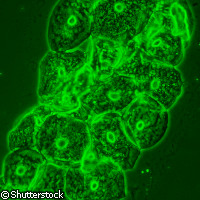New project to create pan-European network of microbiological resources
A new EU-funded initiative is set to create a pan-European network of centres specialising in the collection, analysis and preservation of samples of microbiological material such as bacteria, viruses and microscopic fungi. Dubbed EMBARC ('European consortium of microbial resource centres'), the three-year project is financed to the tune of EUR 4.2 million by the Infrastructures Theme of the EU's Seventh Framework Programme (FP7). EMBARC brings together 10 European research organisations in 7 countries which between them house some 200,000 lines of microbiological material, including the world's oldest conserved bacterial cell line, which was isolated in 1892 and is stored at the French National Centre for Agricultural Research (INRA). One of the main aims of the project is to harmonise the methods used by these organisations to conserve and identify samples. The consortium is particularly keen to put in place a bank of DNA material, in line with growing demands for these kinds of materials from the scientific community. Existing DNA preservation techniques need to be improved, particularly for samples that need to be kept for a long time. The project partners will also explore new approaches for the classification and identification of micro-organisms. 'A collection of micro-organisms is not a museum, it is not static, you need to constantly enrich it and develop new methods of identification and conservation,' commented Chantal Bizet of the Pasteur Institute in France. The Pasteur Institute is coordinating the EMBARC project jointly with the INRA. Another key objective of the project is to investigate different financing models including private funds in order to guarantee the long-term future of the network. 'The quality of bio-resources is essential in all research undertaken to characterise and promote biodiversity,' said Sylvie Lortal of the INRA. 'Contributing to the long-term future of these collections and their sustainable financing is one of the main priorities for EMBARC.' The micro-organisms contained in the collections of the project partners are used in a wide range of settings, including academic research, education, the agro-food and pharmaceutical industries and hospitals. For example, if a researcher is developing a new vaccine, he or she may wish to test it on cell lines collected before the use of antibiotics became widespread. Centres of microbiological resources have cell lines dating back over 70 years to the pre-antibiotic era. The EMBARC partners will launch calls for proposals to make their resources, equipment and expertise available to the wider research community. Services to be provided by the project partners include education, the identification of species and the authentication of material. The partners will also offer high-throughput screening, which will allow the comparison of the properties of large numbers of samples. Finally, by working together and harmonising their activities, the EMBARC partners will lay the foundations for a future Global Biological Resource Centre Network, GBRCN, thereby ensuring that European researchers are at the forefront of this international initiative.



